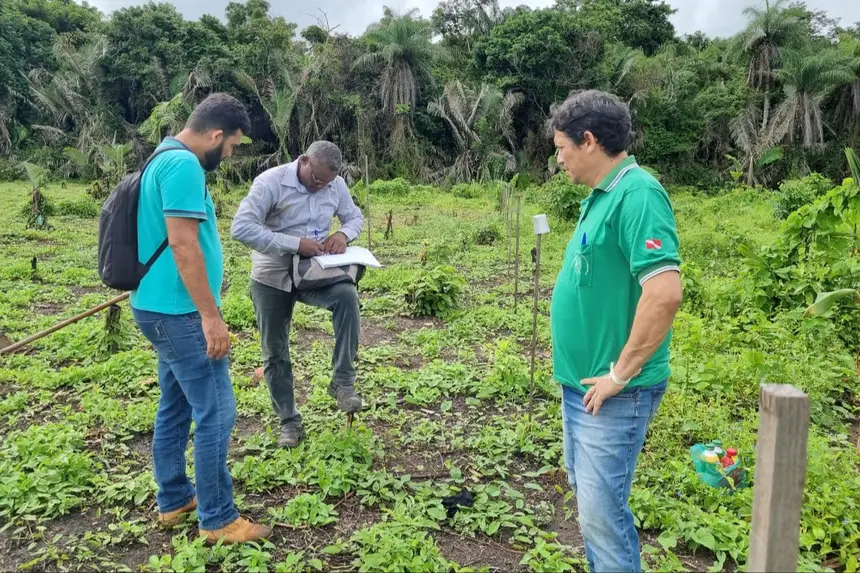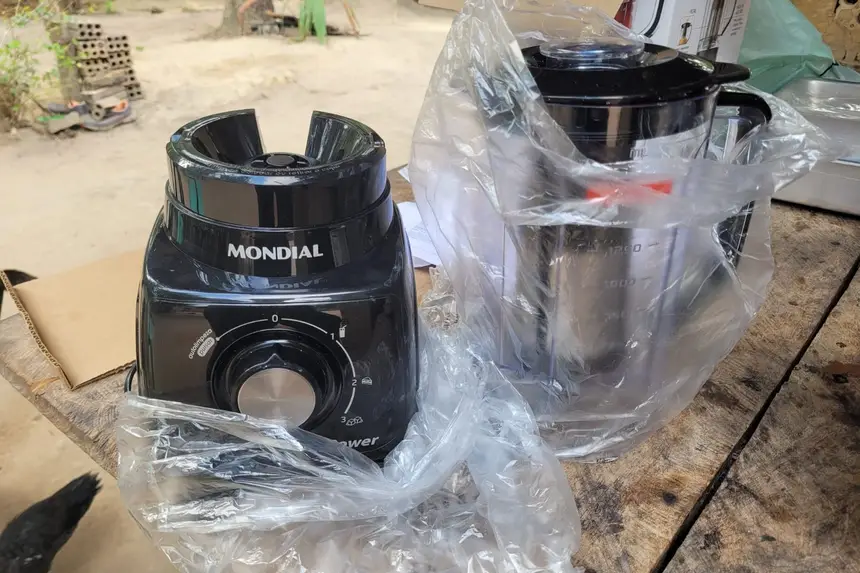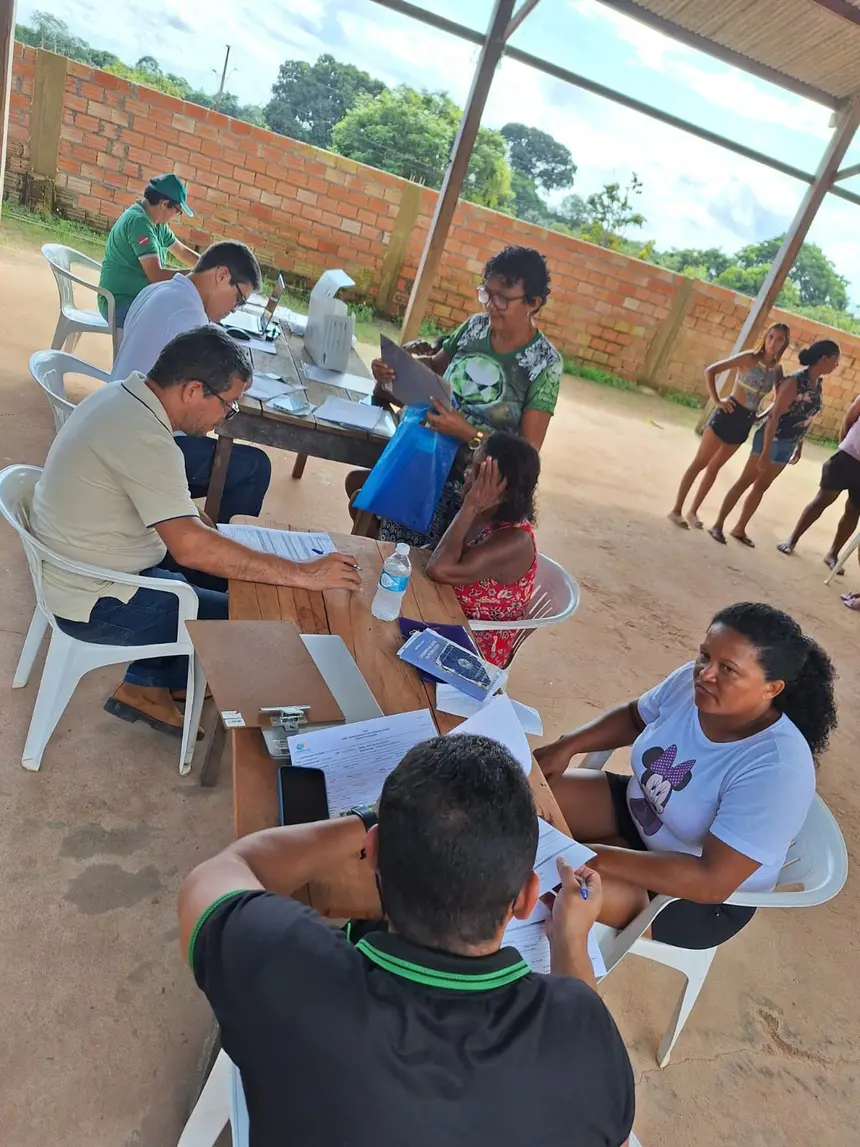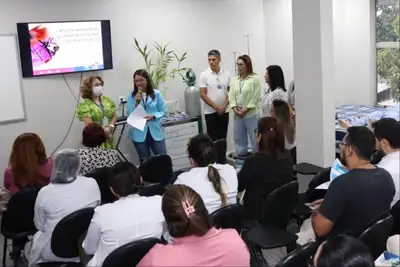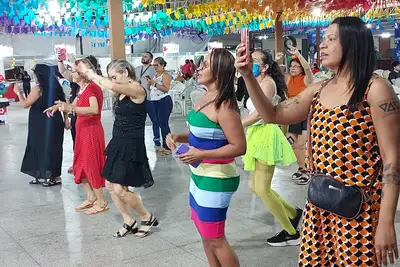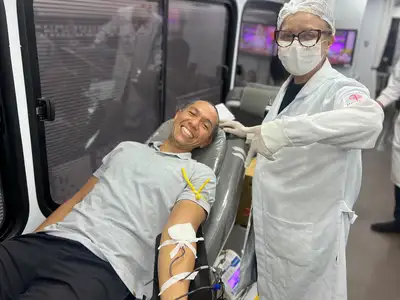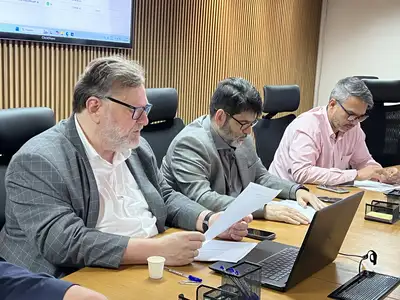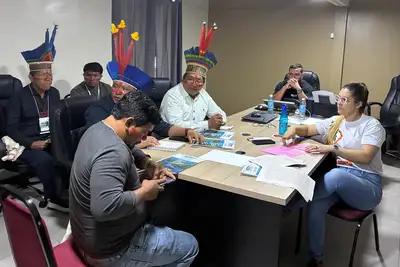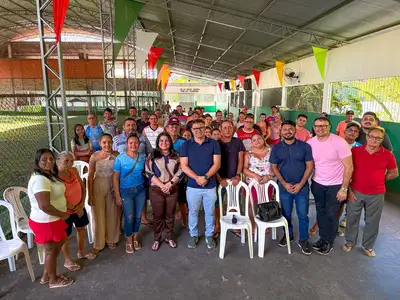Emater encourages quilombola enterprises in Santarém, in the western state
The Technical Assistance and Rural Extension Company of Pará (Emater) assists family farmers in diversifying production and obtaining better income
In the quilombola territory of Bom Jardim, at km 27 of the PA-370 highway, in Santarém, in the Lower Amazon, Laisa Assunção, 28 years old, sells up to 50 homemade cakes per month to the neighborhood. These are original recipes that adapt traditions and utilize regional ingredients, such as cocoa and cassava.
“I have always made cakes, I have always been on this side of confectionery. They may look like normal cakes, but they represent dedication and history. My plan is to create a brand with a name and logo, establish a commercial point, and professionalize the services more: right away, I can double the number of cakes and expand beyond what I currently make, which is savory snacks,” points out the family farmer assisted by the local office of the Technical Assistance and Rural Extension Company of Pará (Emater). She lives with her husband, Adevan Guimarães, 30 years old, and their son, Kauã Silva, 11 years old.
Between 2024 and 2025, through the Program for Promoting Rural Productive Activities (Fomento Rural), coordinated by the Ministry of Development and Social Assistance, Family and Fight Against Hunger (MDS) and executed in Pará by Emater, the family received a resource of R$ 4,600, in two installments, to invest in the enterprise, with the acquisition of new equipment, such as a modern stove and a more powerful blender.
During this period, there are 17 quilombola families in total participating in Fomento Rural in Santarém. In addition to baking, the projects include processing and storage of sociobiodiversity items, raising free-range chickens, artisanal fishing, and environmental and sanitary adjustments for pig farming. The immediate goal is for vulnerable populations to overcome conditions of poverty and extreme poverty.
“Fomento Rural is a differentiated public policy for the quilombolas of Santarém - it is an incentive for entrepreneurship and financial autonomy. All of this helps people intensify their sense of belonging and territoriality, helps them stay in the countryside, discourages exodus, that historical movement of displacement from rural areas in search of better socioeconomic opportunities: rural exodus has profound collective consequences and even leads to the erasure and forgetting of peasant production. When we structure the offer of services within the community itself, the overall quality of life transforms: the result is work and income, leisure, integration, and family succession - not in isolation for individuals, but in a community context,” states Haroldo Sousa, a sociologist at the local Emater office in Santarém, specializing in Management and Teaching in Higher Education.
In the municipality, the Emater team directly supports more than 900 families from 13 quilombola communities, in partnership with the Federation of Quilombola Organizations of Santarém (FOQS): Arapemã, Bom Jardim, João Pereira, Nova Vista do Ituqui, Murumuru, Murumurutuba, Patos do Ituqui, Pérola do Maicá, São José do Ituqui, Saracura, São Raimundo do Ituqui, Surubiu-Açu, and Tiningu.
The expectation of the state agency is that those currently benefiting from Fomento Rural will access, already in the first half of next year, through Emater's elaboration and release by the Bank of the Amazon (Basa), rural credit from line A of the National Program for Strengthening Family Agriculture (Pronaf), in the unit value of up to R$ 50,000.
Achievements
Still in Bom Jardim, another micro-entrepreneur, Aldenice Oliveira, 43 years old, calculates the advantages of Fomento Rural, through which she has improved the business of extracting and selling blended açaí. The work is done together with her husband, Adriano Pereira, 37 years old. During the harvest, the two sell about 50 liters of medium açaí in a single day.
Another main activity of theirs is the production of medicinal oils from the Amazon rainforest, such as andiroba and buriti.
“Our market is by order, although we have regular production because there is a fixed clientele. Depending on the demand, we have glass outputs from 25 ml to one liter. There are oils that take us up to four months to extract, distill, as it is a very delicate and time-consuming process. The oils are jewels of the forest: they represent the knowledge passed down from generation to generation, respect for nature, and the sustainable survival of a people,” comments the mother of nine children, aged between four and 24 years. Seven of the children were born within the community: three by the hands of their father. Two are already adults studying Economics and Forest Engineering at the Federal University of Western Pará (Ufopa).
“My children graduating in these areas that are all related to the family business, I intend to improve the 'living pharmacy'. I already feel like a businesswoman, yes, but the path is to think big, high, and forward: to produce more and better, contribute to the community, and at the same time surpass borders, reach the world. We have a lot to show. The quilombola experience is a record of ancestry, cultural heritage, bonds, and roots. A product from here is a consumption that involves reflection,” she says.
Text by Aline Miranda



